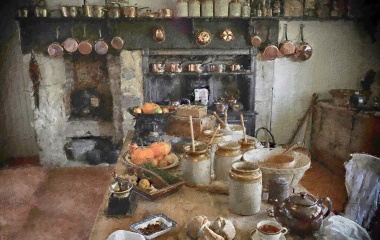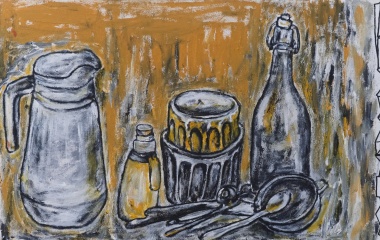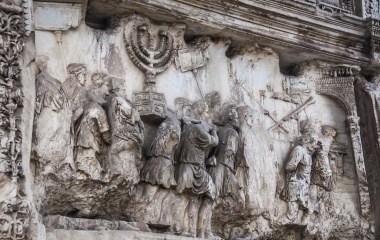
The very first teaching in all of rabbinic literature[1] is the saying of the Men of the Great Assembly that those who render decisions on matters of Jewish law must be “metunim badin, deliberate in judgment” (Pirkei Avot 1:1).
Rendering decisions is a very serious issue, and one must take one’s time before issuing a ruling, examining all angles of the question, taking into account not just the theoretical legal question, but also the impact on the person asking the question[2]. This is something especially relevant in our society, where we expect instant everything. Many—perhaps most—questions can’t be answered with the click of a button. Rabbi Soloveitchik would often lament how Rav Chaim Ozer [Grodzinski, the leading rabbinic decisor, posek, of pre-war Europe] would spend weeks analyzing a question; but the modern (less learned) rabbi is expected to give an answer on the phone (or respond at all hours of the day by email) on questions that are much more complex than those faced by our rabbinic predecessors. If we allow many months for the Supreme Court to rule on a particular issue, we should realize that questions of Jewish law may deserve no less.
Not only must the rabbi be well versed in the relevant issues, he must be in the proper frame of mind before an answer can be given. When a chicken lays an egg on Yom Tov, we follow the view of Beit Hillel that it may not be eaten. Whether that the egg may be eaten on the second day of Yom Tov is the subject of Talmudic debate.
By biblical definition, there is only one day of Yom Tov, with the second day coming about in the days before we had a fixed calendar, so that those living far from Jerusalem were in doubt as to whether the month preceding Yom Tov was 29 or 30 days. They kept a second day to ensure that they were observing Yom Tov on the proper day. If the first day is the actual day of Yom Tov, then the second day is a regular weekday, and the egg may be eaten. And if the second day is the real day of Yom Tov, then the egg was laid on a weekday, so of course we may eat it. While this was universally agreed upon when we were truly in doubt regarding which day was the actual Yom Tov, such an argument loses much of its force “today”, when we know the actual day of Yom Tov, with the second day kept not as a matter of doubt but as an established custom. As such, Rav Yossi argues that the two days may be viewed as one long day, and the egg would be forbidden even on the second day. Nonetheless, Jewish law follows the view of Rav and permits consumption of the egg—though not on the second day of Rosh Hashanah, which is viewed as one long day.
What about the in-between case where we have Yom Tov on a Friday or Sunday, making it back-to-back with Shabbat? Here, Rav forbids their consumption, whereas Rav Yochanan allows such. Amidst this discussion, the Gemara relates how once when Yom Tov was on Sunday, Rav Pappa was asked on Shabbat if one could eat an egg laid on Shabbat on the morrow—which would be Yom Tov. Rav Papa told him, “Leave today, and come back tomorrow”. He was, the Gemara explains, following in the footsteps of Rav, who would not give a derasha on Yom Tov “because of drunkenness[3]”; and one who is drunk is forbidden to issue rulings of Jewish law. The Talmudic definition of “drunkenness” is met when one drinks as little as a revi’it of wine (generally assumed to be 86 grams). The mitzvah of simcha[4] requires that we do drink wine on a festival and, with even small amounts of alcohol impacting our thought process, we may not issue rulings when “under the influence”[5].
When the questioner returned the following day, Rav Pappa said that had he answered yesterday, he would have given the wrong answer and allowed the eating of the egg, based on the principle that “Rav and Rav Yochanan; the law follows Rav Yochanan” (4b). However, that would have been a mistake, as this is one of the three exceptions where the law follows the view of Rav that the egg is forbidden.
It takes a great rabbi to know what (and when) he does not know.
[1] Pirkei Avot which traces the history of Torah transmission from one generation to the next opens with this teaching, the first in the post biblical period.
[2] Two people can ask the exact same question and yet, due to differing circumstances, receive different answers. Jewish law is as much an art as a science.
[3] The Gemara (Pesachim 113a) quotes Rav Pappa as saying, “If not for the fact that I brewed beer, I would not be wealthy”.
[4] Conceptually, the mitzvah of simcha cannot co-exist with the seriousness needed to issue halachic rulings.
[5] According to many commentaries, Nadav and Avihu were killed because they had imbibed wine before offering a sacrifice; immediately after their deaths, the Torah records the prohibition of drinking before one enters to serve G-d.



